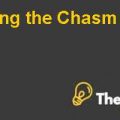
Name: ________________________________
Instructions: The exam consists of six questions. The questions are to be answered in the blank space provided after each question using 12 point font (no additional space is allowed). The exam is open book, and you are allowed to use outside sources, but except for minor citations, you should use your own words to answer the questions.
Please note that it is an individual exam, and you are not allowed to discuss the contents of the exam with anyone prior to the 12 noon deadline on June 27.
Good luck!
Question 1 [20 points]
Download the file called “Final Exam Article.pdf” from the dropbox on D2L and read the article. Please summarize the article, focusing on the following topics (the space provided below is the maximum space allowed; a shorter answer may well be given full score):
a. Why are private equity funds interested in China?
b. What is the role of private equity in China?
c. What are the challenges facing private equity firms in China?
d. What has been the performance of private equity funds in China?
China is considered as a big and growing market with good entrepreneurs. Secondly, the Chinese financial system has a gap that can be filled by private equity. Private equity firms are playing an important role in the Chinese market as the capital raising is done through state controlled channel; which offers less return on investments and heavy charges to entrepreneurs. Thus, the need of private equity occurs. Private equity firms have acquired 30% of the recent offerings according to citi group which shows their performance.
Rules and regulations are strict for acquiring and controlling for operating companies in China. In addition, the deal concerned with dollar funds are even more difficult so some bigger firms are focusing on PIPE as it is costs less as compared to private targets.
Private equity firms have high rate of return and their internal rate of return (IRR) touched to 32.6% in 2004. Insiders are also getting large payouts. This exhibits the progress made by private equity holders.
Question 2 [20 points]
A venture capital fund agrees to pay $3 million to purchase a 50% stake in eCompany. Soon after completing this transaction, company receives a bid of $3.5 million for the whole company from a potential purchaser. If the company is sold at that price, what would the venture capital fund’s payoff be if:
a) Its original investment was all in common stock?
Common stocks reward higher yield than other form of investments in term of capital growth. But this higher return comes at a cost as common stock entails higher risk. The common stock holder will not receive money until the bond holders, creditors and preferred shareholders are paid, in case the company liquidates.
b) Its original investment was all in convertible preferred stock? At what sale price for the company would it make sense for the venture capital fund to convert its convertible preferred stock?
Convertible preferred stocks are a good source of fixed income for purchaser. Investors may convert their preference shares into equity shares after a specific period. Depending upon the growth of a company; a purchaser can lose his fixed return on preferred stock in the form of a dividend and may or may not get any returns after conversion.
c) Explain how a participating convertible preferred stock (PCPT) differs from a standard convertible preferred stock, and what benefits it has for the investor purchasing the PCPT. Why would existing investors agree to use a PCPT security in a new financing round?
Participating convertible preferred stock is a type of preferred stock that provides the purchaser a specific dividend that is paid to them before any dividends are paid to the common shareholders.
Most of the convertible preferred stocks are rated by the rating agencies on the basis of standards and poor’s are standard convertible preferred stock; participating convertible preferred stock takes the precedence over common stock in the event of liquidation.
Question 3 [15 points]
How does corporate strategy give a private equity fund a comparative advantage over its competitors and lead to superior returns? Focus on organization, portfolio, investment style, and governance.
Private equity funds have an advantage over its competitors as there is a huge universe of potential company that makes investment in equity funds. The private equity funds are selective and spend significant amount of their time to assess the resources, risk and how to mitigate risk. The companies that used private equity will usually grow much faster pace than the other types of business. The reason for this is that the combination of the experienced management skills and the capital that comes from the firm executives; set them apart from the other different types of financings. Private equity funds provide the great way to the firm ...........................................
This is just a sample partial case solution. Please place the order on the website to order your own originally done case solution.













